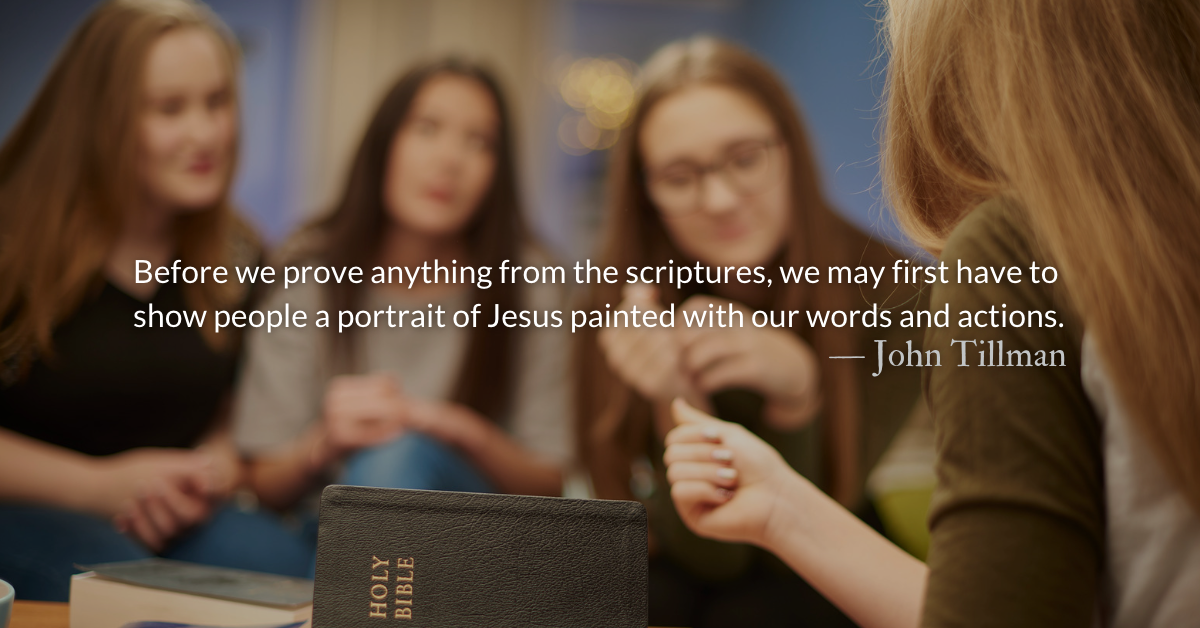Scripture Focus: Acts 18.24-28
24 Meanwhile a Jew named Apollos, a native of Alexandria, came to Ephesus. He was a learned man, with a thorough knowledge of the Scriptures. 25 He had been instructed in the way of the Lord, and he spoke with great fervor t and taught about Jesus accurately, though he knew only the baptism of John. 26 He began to speak boldly in the synagogue. When Priscilla and Aquila heard him, they invited him to their home and explained to him the way of God more adequately.
27 When Apollos wanted to go to Achaia, the brothers and sisters encouraged him and wrote to the disciples there to welcome him. When he arrived, he was a great help to those who by grace had believed. 28 For he vigorously refuted his Jewish opponents in public debate, proving from the Scriptures that Jesus was the Messiah.
Reflection: Portrait Shaped by Scripture
By John Tillman
Apollos “proved” from the scriptures that Jesus was the Messiah.
This easy-to-miss phrase tells us that Apollos and the Jews had an agreed-upon interpretation of messianic prophecies and an agreed-upon set of facts about the life of Jesus. They compared the two and determined that they matched.
This was all happening just a few years after Jesus’ death. Information and people traveled fairly easily. Facts could be verified because people who experienced these events were still alive, including the people who condemned Jesus to death, those who carried out his sentence, and those who saw him resurrected. (1 Corinthians 15.3-7)
Our faith is a fact-based faith. The single-most important (and audacious) factual claim of Christianity is that Jesus was resurrected. Skeptics of this claim and of Christianity didn’t suddenly appear on the scene during the Age of Reason. Christianity was tested by skeptics immediately following the resurrection during a time in which its followers had no power or influence and it should have been easiest to disprove.
Apollos was able to point to the portrait drawn by the writings of Isaiah and other biblical authors and then point to the life of Jesus. For many faithful Jews, it was obvious that they were the same picture.
When we speak about the gospel or engage in discussion with those who don’t share our faith, it may be difficult for us to “prove” anything from the scriptures. Apollos’s audience knew the scriptures inside and out. Modern people don’t know or trust the scriptures. Not only do they not have positive knowledge of the scriptures, many have negative experiences with scripture being weaponized, twisted, and used to accuse, abuse, dehumanize, and attack them.
Before we prove anything from the scriptures, we may first have to show people a portrait of Jesus painted with our words and actions. If we can show the beauty of living in a way that shows the Father’s love, people will be willing to consider trusting our Father’s words.
Lord, help us to remember that some have been wounded by scripture.
Help our lives to be shaped by scripture into a beautiful artistic portrait of you.
May the picture we paint of you show that the scriptures are good so that others can believe the gospel.
Divine Hours Prayer: The Call to Prayer
Come and listen, all you who fear God, and I will tell you what he has done for me. — Psalm 66.14
– From The Divine Hours: Prayers for Springtime by Phyllis Tickle.
Today’s Reading
Leviticus 22 (Listen 4:41)
Acts 18 (Listen 4:06)
Read more about A Different Kind of Exile
In 1 Peter 2, we see that the scattered exiles from Jerusalem…Their lives—their good deeds—are literally the arguments they are to defend themselves with.
Read more about Default Settings for Scripture
The “default settings” of our mindsets about scripture have a big effect on our ability to make use of them in the ways Paul and Peter intend.







